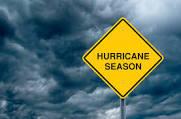Governor Baker Proclaims July 10-16 as “Hurricane Preparedness Week”

Plan for Your Unique Needs
Every person and family may have different needs in an emergency. Individuals with disabilities or medical needs may to take extra steps to prepare:
- If you receive medical treatment or home health care services, work with your medical provider to determine how to maintain care and service if you are unable to leave your home or have to evacuate.
- If you live in an area that may flood and may need an accessible transportation option to evacuate, plan with family, neighbors, and friends who may assist you. Contact local public safety officials to make them aware of your needs.
- If your medical equipment uses electricity, talk to health care providers, your utility company & your personal support network for options during a power outage.
- Ensure that your emergency kit has all the items you and your family would need including medications, spare eyeglasses, medical equipment and supplies, and children's items such as diapers and formula.
Ways to Prepare
Know Your Zone – In Massachusetts, there are three designated hurricane evacuation zones - Zone A, Zone B, and Zone C, for coastal areas of the state at risk for storm surge flooding during hurricanes. Visit MEMA’s interactive hurricane evacuation zone map to learn if you live or work in a hurricane evacuation zone: www.mass.gov/knowyourzone.
Make an Emergency Plan – Talk to your family and create an emergency plan of how your family would evacuate, shelter in place, and stay in touch. Consider children, seniors, individuals with disabilities and medical needs, and pets in your emergency plans. https://www.mass.gov/info-details/make-a-family-emergency-plan
Build an Emergency Kit - Build an emergency kit that includes all the items your household would need for three to five days without power. Every emergency kit should include bottled water, food, a flashlight, a radio and extra batteries, a first aid kit, and personal & hygiene items. Kits should also be customized for any additional items your family would need given medical conditions, pets, and other considerations: https://www.mass.gov/info-details/build-an-emergency-kit.
Stay Informed – Individuals should have several ways to receiving emergency alerts. Residents are urged to sign up for their community’s local notification systems. Other ways to receive alerts and information include the Emergency Alert System, Wireless Emergency Alerts, NOAA Weather Radio, and social and traditional news media. The Commonwealth’s 2-1-1 hotline is available 24x7 for non-emergency assistance and is available with translation in 150+ languages and can be accessed via video relay services. https://www.mass.gov/info-details/be-informed-and-receive-emergency-alerts
For more information, including interactive evacuation zone maps, a social media toolkit, flyers, preparedness tips, videos and more, visit MEMA’s Hurricane Season Preparedness webpage.








